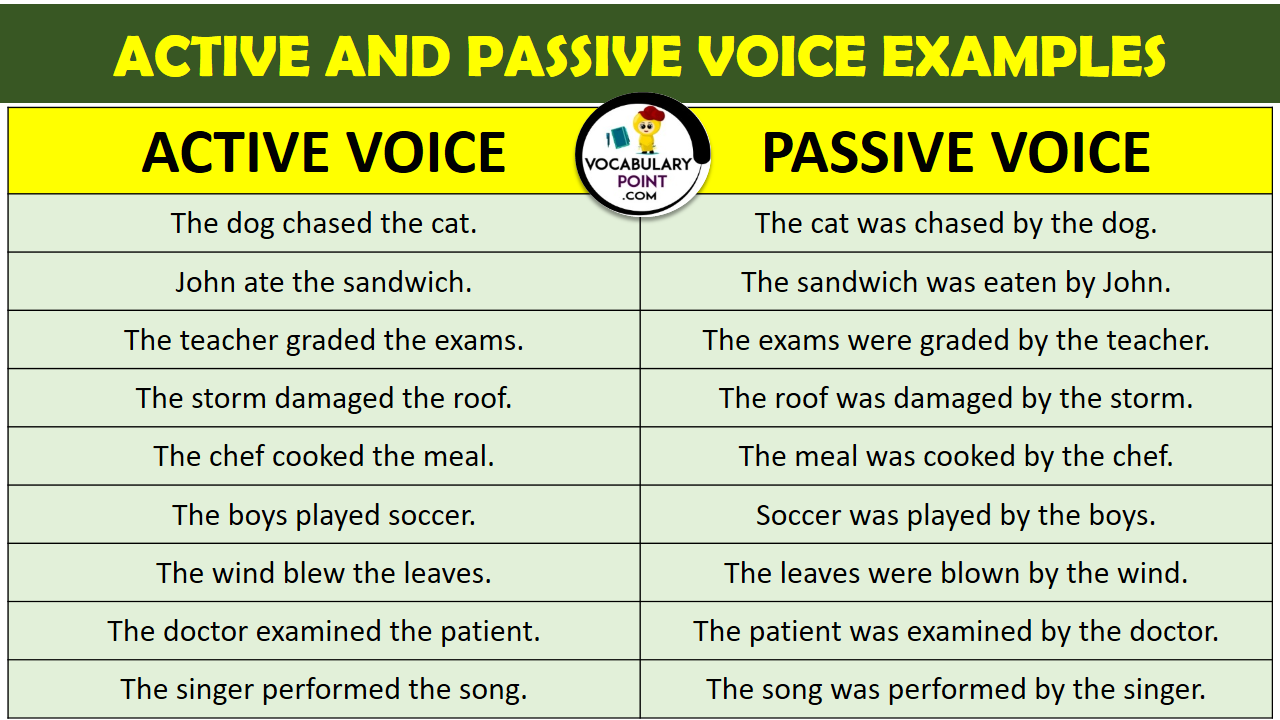Passive voice is a common grammatical structure used in English language. It is often used to emphasize the action being done rather than the person or thing performing the action. While active voice is more direct and clear, passive voice can be useful in certain situations. Understanding passive voice can help you improve your writing skills and communicate your ideas effectively.
When using passive voice, the subject of the sentence is being acted upon by the verb. This can sometimes make the sentence sound more formal or impersonal. Passive voice is commonly used in academic writing, scientific reports, and news articles. However, it is important to use passive voice appropriately and avoid overusing it in your writing.
Examples of Passive Speech
1. The cake was baked by Mary. (Passive)
2. The team was led by the captain. (Passive)
3. The report will be reviewed by the manager. (Passive)
Using passive voice can be effective in certain situations. For example, when the doer of the action is unknown or not important, passive voice can be used to focus on the action itself. Passive voice can also be used to create a sense of formality or objectivity in your writing. However, it is important to use passive voice judiciously and consider the impact it has on the clarity and flow of your sentences.
While passive voice has its uses, it is important to be aware of when it is appropriate to use it. In many cases, active voice is more direct and engaging for the reader. When revising your writing, consider whether using passive voice enhances or detracts from the overall message you are trying to convey. By understanding the nuances of passive voice, you can improve the clarity and effectiveness of your writing.
In conclusion, passive voice is a useful grammatical structure that can be used to create a sense of formality or objectivity in your writing. By using passive voice judiciously and considering its impact on the clarity and flow of your sentences, you can effectively communicate your ideas to your readers. Remember to always strive for clarity and precision in your writing, whether you choose to use passive or active voice.
